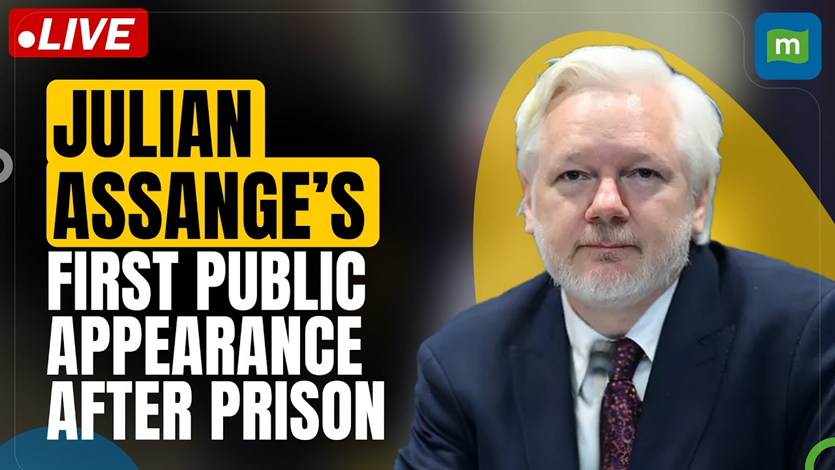Julian Assange’s saga as the founder of WikiLeaks has been tumultuous, marked by his lengthy imprisonment in Belmarsh prison in London for over five years without being charged with a crime. Reports indicate that Assange was released on June 24, after he agreed to plead guilty to violations of the Espionage Act. Upon his return to Australia on June 26, he was greeted by his family, including his wife Stella and his father, who has drawn parallels between Assange’s tribulations and that of Ulysses, the mythical hero who endured challenges during his return from war. This initial homecoming held deep significance for Assange, illuminating his journey through considerable strife in the fight for press freedom.
On October 1, 2023, Assange made a notable public appearance, addressing members of the Parliamentary Assembly of the Council of Europe in Strasbourg for the first time since his release. During this historic hearing, Assange asserted that he had been coerced into pleading guilty “to journalism,” emphasizing that his prosecution sets a precarious precedent for journalism and press freedom. He articulated the risks that journalists face as a result of his case, urging lawmakers to establish protections to prevent similar situations from occurring in the future. The effect of Assange’s prosecution is recognized as chilling, raising crucial questions about the safety and freedom of those reporting on powerful institutions.
Assange’s address not only touched upon his personal struggles but also resonated within the broader context of press freedoms globally. He underscored his commitment to journalism, emphasizing that journalists should not fear criminal prosecution for performing their duties. Assange noted that his release was not the result of a functional justice system, but a desperate act to regain his freedom after years of unlawful detention. His statement has garnered commendations from organizations advocating for human rights, including Reporters Without Borders, which has called for legislative measures to protect journalists and thereby safeguard future press freedoms in Europe.
Experts in journalism, such as Dr. John Jiggens and Dr. Suelette Dreyfus, have underscored Assange’s impact on modern journalism, attributing the rise of platforms allowing whistleblowers anonymity to his innovations with WikiLeaks. This paradigm shift has influenced mainstream news organizations, even as they failed to support Assange during his legal challenges. The challenges Assange faced serve as a stark reminder of the potential repercussions of investigative journalism and whistleblowing—activities fundamental to maintaining transparency in government and corporate actions.
The dialogue surrounding Assange’s case extends beyond individual rights to a broader commentary on free speech against a backdrop of increasing surveillance and censorship globally. Critics argue that the potential for draconian regulations targeting dissenting voices is rising, as demonstrated by actions from various governments and global organizations. Assange’s message highlights a critical turning point for free speech, tightly linking it to the protection of journalistic values that allow for scrutiny of governmental power—a fundamental democratic principle.
Moving forward, Assange’s continuing influence as an icon in the fight for press freedom and human rights remains evident. His experiences emphasize the need for vigilant advocacy for journalists and media organizations willing to confront powerful entities on behalf of the public. The recent developments in Assange’s case illustrate the importance of collective action in safeguarding these liberties, as the international community is called upon to ensure that the right to speak truth to power is preserved for future generations. The challenges faced today echo historic struggles for civil liberties, presenting an ongoing generational dilemma reflective of the tumultuous political dynamics of the 21st century.

